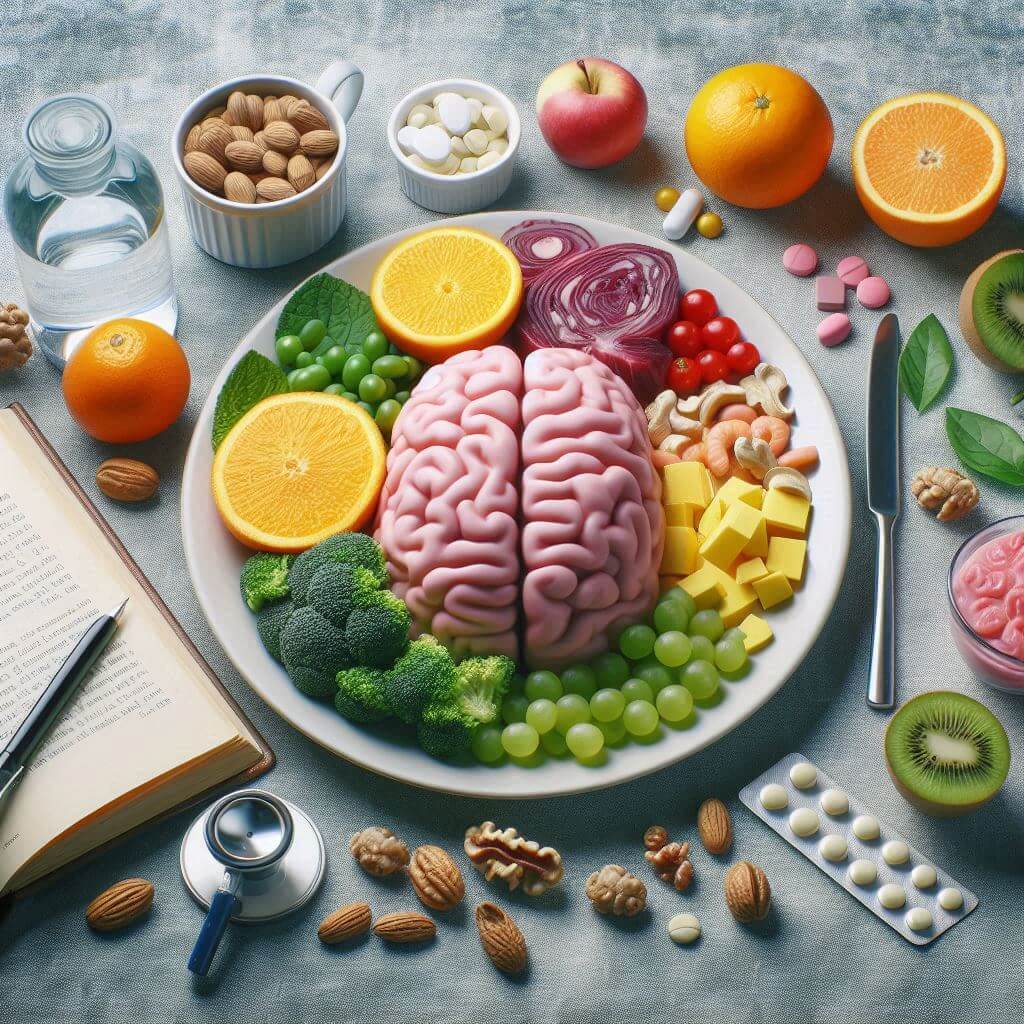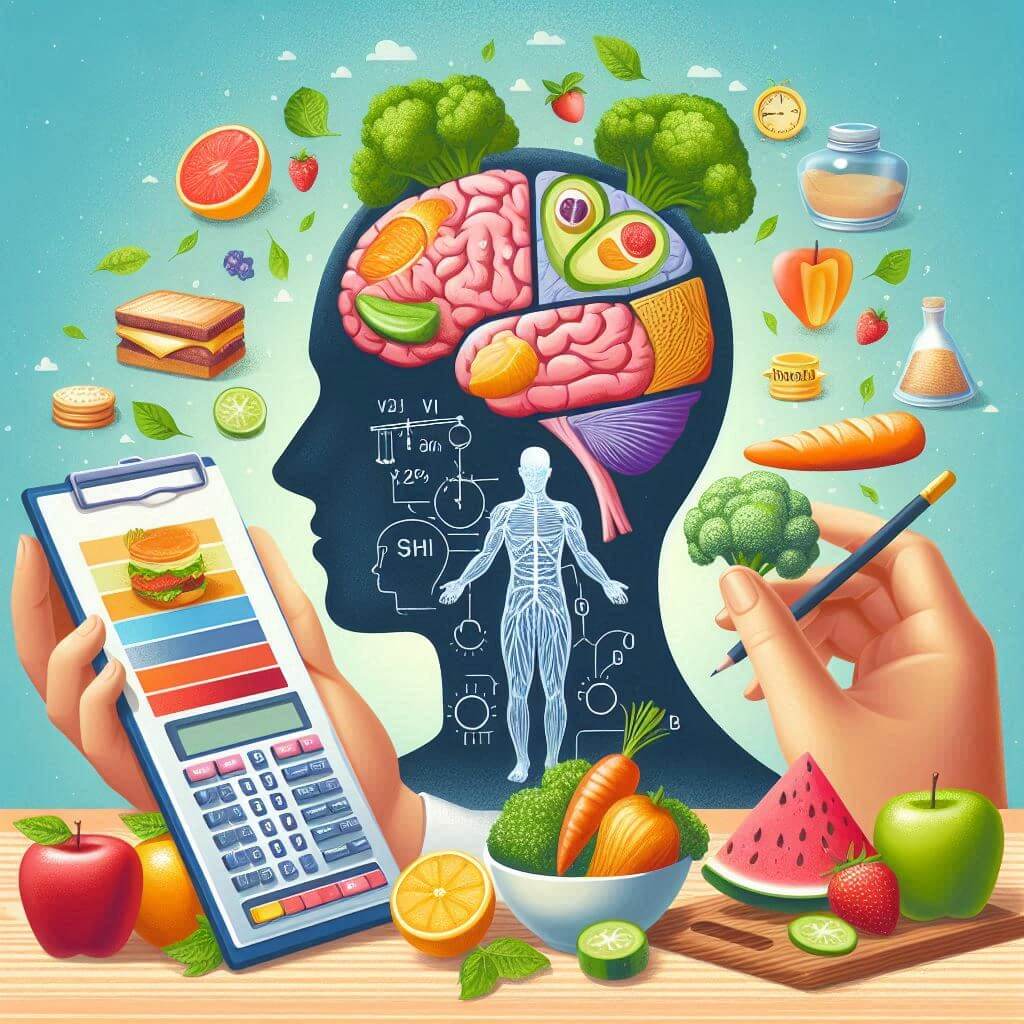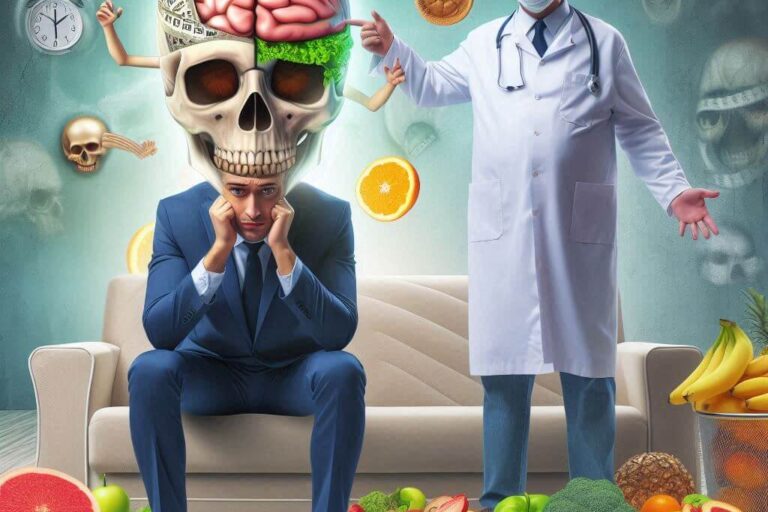As health-conscious individuals, it is essential to understand the connection between our diet and improving mental health.
We often neglect the importance of a food healthy in maintaining mental balance.
In this article, we’ll explore common myths about diet and mental health, as well as uncover the truth about the impact diet has on our mental health.
Let's debunk these myths and show you how nutritional reeducation can significantly improve our mental health.
Common myths about diet and mental health

Myth 1: There is no connection between diet and mental health
One of the most common myths is the belief that our diet has no impact on our mental health.
However, scientific research has consistently shown a strong link between what we eat and our mental state.
Processed foods, rich in sugars and fats saturated, can contribute to the development of mental illnesses, such as depression and anxiety.
It's important to recognize that what we put into our bodies affects not only our physical health, but our mental health as well.
Myth 2: Only certain foods can improve mental health
Another common myth is the idea that only certain foods have the ability to improve our mental health.
While some foods are known to have positive effects on mental health, such as fish rich in omega-3 and foods rich in tryptophan, it is important to remember that a balanced and varied diet is essential for good mental health.
Several nutrients, such as B vitamins, magnesium, and zinc, are essential for proper brain function and mood regulation. Therefore, we should take a holistic approach to our diet rather than focusing on just a few specific foods.
Myth 3: Dietary changes are not effective for mental health
A third myth is the belief that making dietary changes is not effective in improving mental health.
However, scientific studies have shown that adopting a healthy diet can have significant impacts on our mental health.
The Mediterranean diet, for example, has been linked to a lower risk of depression and anxiety, due to its emphasis on fresh, nutrient-rich foods that are low in saturated fat.
Additionally, reducing your intake of processed foods and sugars can improve cognitive function and reduce symptoms of depression.
A review published in Healthcare discusses how various nutrients, such as magnesium and vitamin D, impact mental health. The study concludes that healthy nutritional habits, such as following a Mediterranean diet, can reduce symptoms of anxiety and depression and improve overall mental well-being (MDPI) .
The Truth About the Impact of Diet on Mental Health

The role of nutrients in brain health and mood regulation
Now that we’ve debunked the myths, it’s important to understand the truth about the impact of diet on mental health. Specific nutrients play essential roles in brain health and mood regulation.
For example, omega-3 fatty acids found in fish, nuts, and seeds help strengthen brain cells and promote communication between them.
B vitamins, found in foods such as leafy greens, whole grains and legumes, are crucial for the production of neurotransmitters responsible for proper brain function and mood stability.
Scientific studies that prove the link between diet and mental health
The relationship between diet and mental health has been widely studied and documented. Scientific studies have shown that diets rich in fruits, vegetables, whole grains and fish are associated with a lower risk of depression and anxiety.
On the other hand, a diet rich in processed foods, refined sugars and saturated fats can increase the risk of developing mental illness.
Additionally, deficiencies in certain nutrients, such as vitamin D and magnesium, have been linked to an increased risk of depression and other mental health conditions.
These scientific discoveries highlight the importance of a balanced diet for mental health.
How nutritional re-education can improve mental health

Now that we understand the truth about the link between diet and mental health, it’s time to explore how changing our eating habits can improve our mental health.
Implementing Dietary Changes to Improve Mental Health
Nutritional re-education involves making gradual and sustainable changes to our diet to promote better mental health.
Instead of adopting radical or restrictive diets, it is important to choose nutritious and balanced foods.
This includes increasing your consumption of fruits, vegetables, whole grains and proteins lean, while reducing our intake of processed foods, refined sugars and saturated fats.
By making gradual changes, it's easier to maintain a healthy diet in the long term, which is essential for mental health.
Tips for incorporating healthy eating habits into your daily routine
Incorporating healthy eating habits into your daily routine may seem challenging, but it’s totally possible. Here are some practical tips to help you transition to a healthier diet:
- Plan your meals weekly and make a shopping list with healthy foods.
- Cook at home whenever possible, using fresh, minimally processed ingredients.
- Try new recipes and foods to avoid monotony and maintain interest in healthy eating.
- Be aware of your emotions and avoid emotional eating. Find other ways to cope with stress and negative emotions.
- Drink plenty of water throughout the day to stay hydrated and avoid confusing thirst with hunger.
Seeking professional guidance for nutritional reeducation
While it is possible to make dietary changes on your own, seeking professional guidance can be extremely beneficial.
A nutritionist or nutritionist can help guide you based on your individual needs.
They can help identify which nutrients you may be deficient in and recommend specific foods to improve your mental health.
Additionally, they can offer support and motivation throughout the process of dietary reeducation.
Conclusion: Embracing the power of nutritional re-education to improve mental health

Nutritional re-education is a powerful tool for improving mental health.
By debunking the myths and understanding the truth about the connection between diet and mental health, we can take steps to improve our diet and, by extension, our mental health.
By implementing gradual, sustainable dietary changes, we can enjoy improved emotional stability, mental clarity, and overall well-being.
So don’t underestimate the power of food when it comes to your mental health. Make conscious choices and embrace nutritional re-education as an effective way to improve your mental health.
Another study of the Cambridge Core emphasizes the role of diet in promoting mental health. It highlights that dietary interventions, particularly those rich in whole foods such as fruits, vegetables and fish, can positively affect mental well-being and reduce the risk of mental illnesses such as depression (Cambridge University Press & Review) .
Here is the FAQ table
| Question | Response |
|---|---|
| Does diet impact mental health? | Yes, scientific research shows a strong link between diet and mental health, especially when it comes to processed foods and sugars. |
| Can only certain foods improve mental health? | No, a balanced and varied diet is essential for mental health. Several nutrients are essential for good brain function and mood regulation. |
| Are dietary changes effective for mental health? | Yes, dietary changes, such as adopting a healthy diet, can have significant impacts, reducing the risk of depression and anxiety. |
| What nutrients are important for brain health? | Nutrients such as omega-3s, B vitamins, magnesium and zinc play essential roles in brain health and mood regulation. |
| Is there scientific evidence of the relationship between diet and mental health? | Yes, studies show that diets rich in fruits, vegetables, and whole grains are associated with a lower risk of mental illness, while diets rich in processed foods increase that risk. |
| How can nutritional re-education help mental health? | Re-educating your eating habits, with a focus on balanced and healthy choices, can improve emotional stability, mental clarity and overall well-being. |
| Is it necessary to seek professional guidance to improve your diet? | It is recommended. A nutritionist can offer personalized guidance and help identify nutritional deficiencies that impact mental health. |









